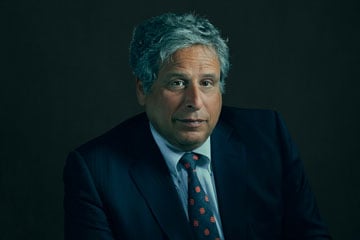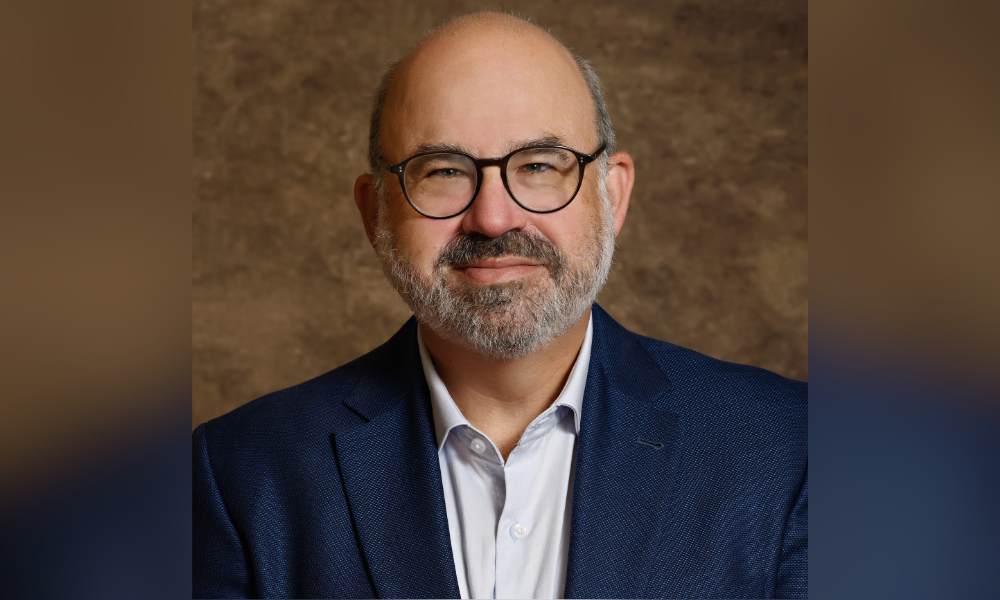Robert Amsterdam’s investigation of Turkey’s Gülen movement is his latest high-risk international assignment.

Robert Amsterdam’s investigation of Turkey’s Gülen movement is his latest high-risk international assignment.
Since 2015, Canadian lawyer Robert Amsterdam’s team has been working for the Turkish government, investigating the Gülen movement and its founder Fethullah Gülen, a Turkish imam living in the United States.
Gülen, the suspected mastermind behind the attempted 2016 military coup to overthrow the government of Turkish President Recep Erdogan, is also the leader of the Hizmet. The movement generates hundreds of millions of dollars running a worldwide network of charter schools, including around 200 in the U.S., and a handful in Canada.
Amsterdam and his team have outlined the criminal nature of Gülen’s organization in the book Empire of Deceit: An Investigation of the Gülen Charter School Network, which was published in September. The book uses public records and interviews to document the movement’s threat to the U.S., through “their hidden agendas, their phony real estate practices, their systemic visa fraud violations, their inflated kickbacks, [40 per cent] tithes [and] legal subsidies …”
The book details how the movement and its millions of followers have used complex scams ranging from how they build schools to how they fund uniforms. “Gülen has made a science of screwing the American taxpayer,” Amsterdam says.
It may seem an odd choice for an international law firm based in the U.S. and London to investigate charter schools. However, for Amsterdam, 61, an international lawyer and founder of Amsterdam & Partners LLP, it was his earlier work on the international stage that led Turkey’s government to seek him out specifically to conduct the independent investigation.
“I was always international, from boyhood. My sister found a letter that I wrote when I was seven to President [John F.] Kennedy suggesting a policy he should follow in Eastern Europe. I mean, I was crazed about Russia, the U.S., the cold war, all of that. I just for some reason found it fascinating and I still do.”
From a young age, the American-born Canadian was political, and he has fond memories of high school activism. In grade 11, he staged a walkout and shutdown of Woodroffe High School, then a march to and 24-hour protest outside the U.S. Embassy, all to protest the American government conducting underground nuclear weapons testing in Amchitka Island, off the southwest coast of mainland Alaska. While it may not have stopped the testing, his protest was given recognition and he and his fellow protesters were invited to meet with the ambassador.
In the early 1970s, in the middle of a détente between the U.S. and U.S.S.R., Amsterdam, then only 17, entered the Soviet Union ready for an adventure. He had been living in Ottawa, but as a student of Marx, Lenin, Hegel, Mao and Stalin, the lure of communism and the excitement of visiting a place so foreign drew the rebellious teen to the other side of the world.
It was on this trip that international and human rights law began whispering to him. Amsterdam still remembers vividly the time he planned to travel to Kishinev, Moldova, to try to get into a trial involving Soviet Jews (along with meeting a beautiful woman and drinking the country’s wine). American consular officials in Leningrad — now Saint Petersburg — tried to stop him by telling him they would no longer protect him, “which only excited me all the more,” he says.
Although Amsterdam wanted to teach political science, a nudge from his older sister, Judy, set him in a different direction. She suggested he pursue law. Although he didn’t do well on his LSAT, he got into Queen’s University days before the start of school. Even then the draw of travel kept him away from Kingston, Ont. so much of the time that his class presented him with a graduation gift: a postcard of the city that he rarely visited.
The lure of exploring other countries and learning about their political systems attracted Amsterdam to international law and kept him interested over the past decades. “I think the creativity of it and the ethereal nature, the fact that it blends law, politics and sociology together is what I find terribly exciting.”
He credits his early love of travel for keeping him feeling at home in some of the most difficult places in the world, including many developing nations where he continues to work. His firm helps businesses navigate emerging markets, identify their political risk and insulate them against civil suits and criminal charges. Despite not being licensed to practise law in most of those countries, his extensive experience and good local contacts help to protect his clients from the many pitfalls that can accompany working in countries where there’s not always a clear line between the legal and political.
Unlike larger firms that he says will go into a country using internationally recognized lawyers who graduated from some of the world’s top universities, he prefers to hire local lawyers on the ground — people familiar with the area’s customs and culture. The lawyers he hires may not always have the most clean-cut reputation, he says, but they’re the ones who get results. “I want someone who doesn’t speak English. I want someone who is not internationally connected to other foreigners … I want to know what’s happening on the ground. I want an old criminal lawyer. I often tell my clients, if he has a full set of teeth, I don’t want him.”
Amsterdam’s job is rife with dangers, many of which he’s faced. To help ensure his safety, he inserts a clause in each contract stating that he can spend money on personal security. While he was acting as international counsel to Russian billionaire and former oil tycoon Mikhail Khodorkovsky, who was convicted of fraud and tax evasion in the mid-2000s, Amsterdam was almost arrested by Russian Federal Security Service officers in the middle of the night. The case drew international attention in part because it illustrated to the world the true ruthlessness of Vladmir Putin, because, as Amsterdam points out, the charges were personally and politically motivated. During an appeal of the charges, Amsterdam’s visa was revoked and he is banned from the country.
Despite this ban, Amsterdam has kept abreast of the current political climate in the U.S., where accusations of Russian interference in the American presidential election and cyberattacks are rampant. He calls the current FBI investigation “just the tip of the iceberg.”
It was the Khodorkovsky case that led Amsterdam to get involved with representing the pro-government Red Shirts in Thailand after the 2006 military coup overthrew the government and Abhisit Vejjajiva was appointed the country’s prime minister. The 2010 Bangkok massacre ultimately resulted in murder charges against Abhisit and his deputy prime minister, which were then dismissed in a controversial decision in 2014. While representing the Red Shirts, Amsterdam was arrested, detained and released every time he went into the southeast Asian country. He even came under investigation for defaming the king, which, he says, could have involved a lengthy jail sentence.
“When I look back, I don’t know how the hell I had the balls to keep going in and out of the country,” he says. It was his work with the Red Shirts that caught the attention of Turkey’s president, Erdoğan, and launched the Gülen movement investigation.
Despite the danger that has accompanied some of his most high-profile cases, it was actually one of his firm’s pro bono cases that he says almost killed him. It was “wildly expensive,” mentally exhausting and pushed him to the brink of burnout. At the time, he was representing Georges Tadonki, who headed the United Nations Office for the Coordination of Humanitarian Affairs in Zimbabwe. Tadonki was fired by the UN after he exposed a coverup during Zimbabwe’s cholera epidemic in 2008 and 2009.
After a decades-long career that has taken him to many places where the rule of law is often flawed at best, Amsterdam’s biggest fear isn’t the threat of being a victim of crime, foreign governments or police. “I’m much more fearful of being locked behind a desk on Bay Street than I am being in a small town in the Congo.”










